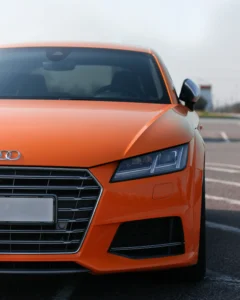When it comes to Spanish, the simple act of referring to a motor vehicle can unlock a trove of regional diversity.
Have you ever wondered how to express “car” in Spanish?
As we explore the terms coche, auto, and carro, we’re not just learning vocabulary—we’re embracing the rich tapestries of Spanish dialects.
Join us as we navigate the intriguing world of Spanish translations for the word “car,” connecting us with millions of Spanish speakers globally.
Translating Car-Related Terms in Spanish
We’re thrilled to dive into the Spanish automotive lexicon!
Let’s explore the common terms, and various types of vehicles, as well as parts and maintenance terms you’ll encounter on this linguistic road trip!

Common Car Terms
In Spanish, the word “car” can be translated to several terms. “El coche” is a term often used in Spain, while “el carro” finds its place more commonly in Latin America.
“El auto” and “el automóvil” are also widely accepted and understood across Spanish-speaking regions.
Contextually, these words are interchangeable when referring to a car, yet each region has its preference.
Types of Cars
Different types of cars also have their unique names.
A “coche deportivo” will grab attention for a sports car enthusiast, while an “auto eléctrico” is what you’d call an electric car.
If you’re packing up for a family trip, you might find yourself driving a “vagón familiar,” known as a station wagon, or perhaps a “descapotable” for a stylish convertible.
Don’t forget the practical “camión” (truck) and “furgoneta” (van) for those heavy-duty tasks or group adventures.
Car Parts and Maintenance
When it comes to car parts and maintenance, a few keywords are vital. “Motor” is the engine that powers your vehicle; knowing this term can be a lifesaver. It’s important to keep an eye on your “rueda” (wheel) as well as your levels of “aceite” (oil), “gasolina” (gas), or “gasóleo” (diesel) — depending on your fuel type.
For the eco-friendly cars, “electricidad” is what keeps them on the move.
Using Car Vocabulary in Context
We’re thrilled to explore how terms like “el coche deportivo” for a sports car or the endearing “carrito” for a shopping cart blend seamlessly into dialogue, signposts, and narratives.
Travel and Navigation
Imagine renting a “coche” at the airport, filling up the tank at the “estación de Servicio,” or navigating through “el tráfico” with ease. We’re active participants, asking for directions to the “estacionamiento” or enjoying a scenic “viaje en auto.”
- Rental
“Necesito alquilar un coche.” - Parking
“¿Dónde está el estacionamiento más cercano?”

Accidents and Safety
We must handle topics like “accidentes automovilísticos” with care. Whether you’re discussing “seguridad vial” or recounting a “cheque,” knowing how to convey urgency or precaution in Spanish is crucial.
Being equipped with phrases for safety—or, unfortunately, emergencies—ensures we manage any situation on the road attentively.
- Caution
“Conduce con precaución para evitar un accidente.” - Assistance
“Necesito ayuda, ha habido un choque.”

Engaging Conversations
Expanding our vocabulary to include various types, like “carrito” for carts or “teleférico” for cable cars, makes our travel tales or enthusiast discussions richer.
We can express admiration for a glistening “coche deportivo” or share experiences about a “viaje en tren.”
- Admiration
“¡Ese coche deportivo es impresionante!” - Experience
“Mi viaje en teleférico fue inolvidable.”

Weaving this array of vocabulary into our Spanish conversations not only bridges linguistic gaps but also connects us more deeply to the culture and its people.
FAQ
Is car in Spanish carro or coche?
What is the difference between carro and coche in Spanish? Both mean an automobile or car. “Coche” is the common term in Spain while “carro” is preferred in Latin America. In Spain “carro” is mostly used to refer to a cart.
What is the correct word for car in Spanish?
In Spanish, the translation for “car” is “coche” or “auto”. Both of these terms are commonly used in Spain and Latin America, with “coche” being more prevalent in Spain and “auto” being more commonly used in Latin America. In some regions, other words like “carro” or “vehículo” may also be used to refer to a car.
Do Mexicans say carro?
I am pretty sure “coche” is most familiarly used in Mexico, but again, calling for a “coche”, “carro”, or “auto” will get you a car wherever you are.
Are you planning to take a trip to Spain?
Or do you just want to extend your Lingual knowledge?
Let us know in the comments or via Mai – we would love to hear your reasons, till then see you next time when it says again…
…Let´s Ride!








